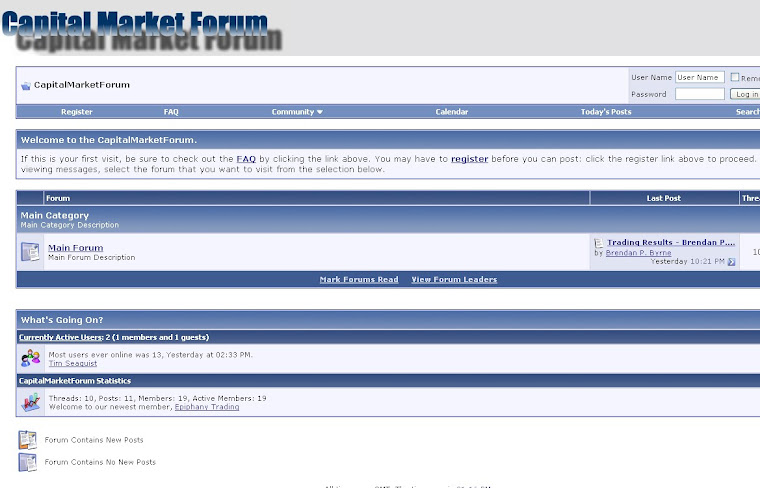Every single morning, indications are published as to the approximate opening range that a NYSE stock will have due to order displacement. The displacement is typically the result of major news in the individual stock and/or the market. Usually, the initial spread- put out around 9:15AM ET is quite wide and narrows over time. For instance, the spread on ALY was indicated 3.25 to 4.25 at (:16:15AM with DYN indicated 4 to 4.75 at 9:18:59AM. Sure enough, DYN opened at 4.49 on the NYSE (but who knew where exactly it’d open) despite its 4.50 cash buyout offer. As a side note, it was trading around 4.45 to 4.50 in the five minutes leading up to the open. ALY was indicated 3.25 to 4.25 after getting a buyout bid for 4.25 in cash. It opened at 3.60, a full 65 cents off of the cash take-out price. Oh, as a sidenote, in the five minutes leading up to the open, it was 3.58 to 3.63 for a trading range on the ECN’s. Even more on point, at 9:24:34AM, NC was indicated 87.50 to 90.50. Yet, at 9:31:00AM, it went 87 to 89 and opened at 87.18 (below the range out there for six minutes plus). So, what happened? Institutions and funds have a habit of placing orders 1-2 minutes before the NYSE open. The specialist can only give orders based on his/her book, i.e. what is in the book much less how much risk the specialist firm is willing to take. So, an early indication (particularly if a stock is trading below or above said indication) is an attempt by a floor specialist to gauge interest. With NC trading at 87.55 as it was at 9:29AM, what can often happen particularly when the market is moving (as well as futures), is that the indication drops a little into the bell as the futures were dropping slightly into the open on Friday. Thus, it's a matter of the specialist attracting buyers because he/she doesn’t want to own too many shares at too high a price. I learned the hard way three times in finally learning my lesson expensively the last time. The last time I did it many years ago (like over 10) was in GS. I don't remember the numbers exactly (although I remember the loss), but it was something like 155-160 indication and it was at 155 on ARCA around 9:27AM ET. So I bought something like 2000 shares at 155 in thinking I’d break even in a worst case even if it opened at 155. It went 154 offer on ARCA but I wasn't worried. It soon was 153.50 offer. And the indication went 150-155 with it opening 151.50. Again, these aren’t exact numbers as the passage of time erodes my memory, but close. So, much more often than not, realize that specialists cannot see ECNs nor is it easily predictable what an institution or fund will want to do on the opening bell. Thus, whatever someone is truly doing is better reflected in the prevailing ECN market than in the opening NYSE tick (which is why GS immediately came in rapidly). The moral of the story is to use NYSE indications as a guide for where a stock may open, but it’s not a certainty. So, for a trader doing any type of trading, don’t treat the opening indications as gospel, but more as a guide- particularly when the prevailing ECN’s tell a different story.
Markets in Asia were mixed overnight with Tokyo rising 0.4% but declining 0.2% in Hong Kong. In Europe, things are relatively quiet as well with Frankfurt flat and London down 0.3%. Gold is up 2/3% and oil up ½%. The dollar is mildly weaker across the board. Bonds are notably strong. Futures are down slightly, but were all over the map overnight with prices trading 0.5% on both sides of unchanged. Look for a quiet session overall today unless a move in bonds or currencies gets out of hand. Volume should be light on a balmy Monday. The focus will be in the for-profit education sector, big cap techs, and foreign airlines on the LFL-TAM merger.
Reiterating-
If the whole story is not there -
If something is good, assume either a short thru unchanged or an A-B-A2 (preferably to the downside in a downside market and the upside in an upside market) based on direction of the market unless specified.
If something is bad, assume either a buy thru unchanged or an A-B-A2 (preferably to the downside in a downside market and the upside in an upside market) based on direction of the market unless specified-
Good- The following stocks have good news and/or a strong technical pattern
LFL, TAM- merging with a ratio of .9 per share LFL= 1 share of TAM
CHBT- closed near a high
AMCN- closed near a high
JKS- good earnings
LOW- decent earnings
SYUT- no direct link was found between infant formula and premature development of infants according to China’s health ministry
Bad-The following stocks have bad news and/or a weak technical pattern
CREE- closed near a low in a continuation of a sell-off following last week’s disappointing earnings report
GS- closed on a low
DV- closed near a low after posting earnings; others in sector sold off as well such as CPLA, LINC, and ESI
TSTC- closed near a low after posting earnings
JCP- closed near a low after posting earnings
JWN- closed near a low after posting earnings
ACY- closed near a low after posting earnings
AAPL- closed on a low
GOOG- closed near a low
CNAM- poor earnings
Earnings:
MON AUG 16 BEFORE
LOW SYY
MON AUG 16 AFTER
A IOC PWRD
RINO URBN
Epiphany Trading, LLC
www.epiphanytrading.com
Erik R. Kolodny- Chief Markets Strategist
Brendan P. Byrne- President
Joseph R. McCandless- Managing Partner
D. Timothy Seaquist- Managing Partner

No comments:
Post a Comment